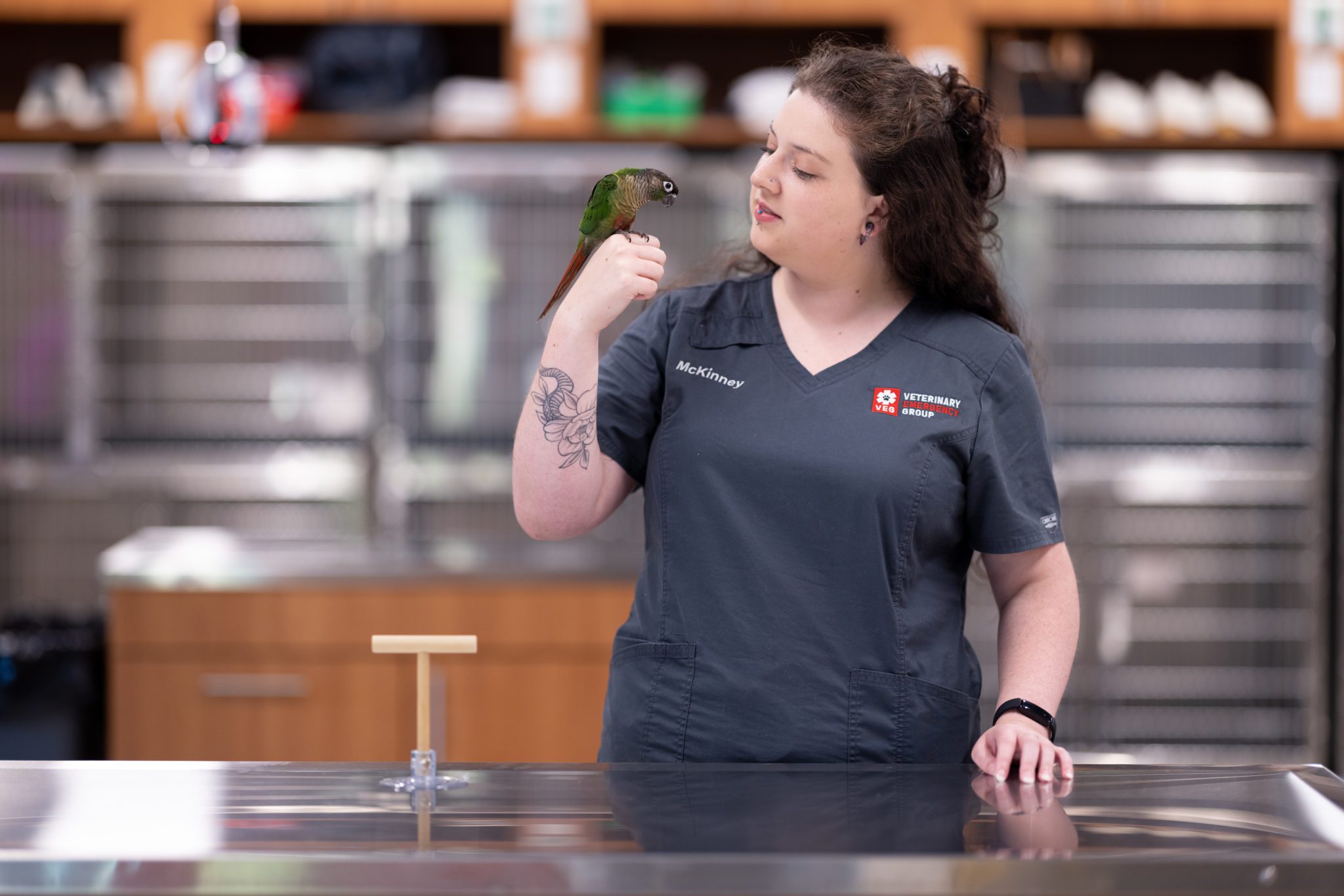
6 Winter Exotic Pet Emergencies Pet Parents Should Know About
Dr. Karen Rosenthal
Call & Speak with a doctor Open 24/7, Even Holidays!
Walk in today for:
Emergencies
Point-of-Care Ultrasound
Urgent Care
X-Rays
Diagnostics + Testing
End-of-Life Care
Surgery
Treatment + Hospitalization
Do you have an exotic pet? Are you concerned about wintertime with your pet? Do you know how to respond if your pet suffers from a winter emergency? Owning an exotic pet may require specific types of care depending on the pet in question, but there are some general pet emergencies you need to familiarize yourself with as well.
In the article below, you’ll find out information about some potential pet emergencies you may encounter during the wintertime with your exotic pet. Take your time reading through this list so you know how to respond in an unfortunate situation and when it’s time to contact an emergency vet.
Common Winter Pet Emergencies People with Exotic Pets Should Look Out For
Exotic pets have the potential to experience emergencies just like dogs and cats can. Because of this, it’s important to know the situations to look out for that may require immediate veterinary care for your pet.
6 pet emergencies people with exotics pets should know about during the wintertime include:
Ingesting Harmful Foods
One of the most common wintertime pet emergencies (for exotics as well as traditional pets) is the ingestion of harmful foods. During this time of year, human family members have more snacks, candy, and unique foods than they have during the rest of the year, which means pets have more access to these foods as well.
If your exotic pet ingests a harmful human food, it’s important to take him to the emergency vet as soon as possible.
Swallowing Foreign Objects
Pets may be more prone to swallowing foreign objects during the winter months, particularly because holiday decorations are more likely to be present in the household. At this time of year, it’s crucial to watch your pet closely when he is in the same room as holiday decorations or other items he could potentially swallow.
If you see your pet swallow a foreign object, go to the emergency vet right away. If you suspect your pet might have swallowed an item but you aren’t sure, it’s still important to get vet care as soon as possible, especially if he is suffering from symptoms of airway blockage or digestive blockage.
Stress and Loss of Appetite
Exotic pets are often much smaller than traditional pets. As such, one of the common pet emergencies that can occur in exotic pets is loss of appetite because it can become a problem for them much more quickly than it might for dogs or cats (although it’s not a good sign in any pet). If your exotic pet loses his appetite, he needs to see a vet quickly to get him back to eating normally once again.
Stress is a common factor that adds to loss of appetite in exotic pets during the winter months. The busy holiday season is more likely to cause your pet to become stressed or anxious than other times of the year.
Frostbite
If your exotic pet spends any time outdoors, even in a garage or on a porch, then there is a risk that he could develop frostbite, especially if left unattended. You should never leave an exotic pet, or any pet, unattended in very cold temperatures or in the snow while outdoors.
Signs of frostbite include exposed skin turning bright red, blue, or black, as well as severe pain in the affected area. Check your pet carefully for any signs of this issue if he has been outside during cold temperatures or in the snow.
Respiratory Infections
Just like humans, exotic pets are more prone to developing respiratory infections during cold and wet months than at other times of the year. Many exotic pets are also prone to respiratory infections already, including most rodents. Unfortunately, these illnesses can be very dangerous to many small animals, especially to rabbits.
If you see your pet sneezing, wheezing, or showing signs of a runny nose, it’s time to schedule a visit to the exotic pet veterinarian. The vet will help diagnose the problem and get your pet back to his normal health as soon as possible.
Low Temperatures
Finally, some pets may suffer from illness or could even potentially die if their temperatures become too low. This is one of the most dangerous pet emergencies your exotic pet could experience. Reptiles and some amphibians are examples of exotic pets that need to be kept at higher temperatures, even during the winter months, to help maintain their health and wellness.
If you lose power during the winter months and your reptiles’ heat mats are unable to function, this can cause a serious loss of heat in a short amount of time. Keeping reptiles and other animals that rely on heaters may require backup plans, such as heat packs, for the safety of your animals.
Call VEG if Your Exotic Pet is Experiencing Any Winter Pet Emergencies
As you can see, there are several potential pet emergencies that can occur in exotic pets during the winter months. The information in this article above is not intended to scare you, but instead to prepare you for the possibilities.
By making sure you are prepared and know how to respond during an emergency, you can provide better care for your exotic pet. Make sure you always have access to a good quality exotic pet vet and emergency vet for best results.
At VEG, our compassionate and dedicated teams specialize in emergency care, for dogs and cats as well as exotic pets. We understand that emergencies can happen at any time, and that exotic pets often require unique care to help with their health. If your exotic pet is experiencing any of the winter pet emergencies we mentioned here, or any other emergency, contact any of our locations right away. All of our locations are open overnight every day, with most being open 24/7, so you’ll always have the opportunity to talk directly with one of our skilled emergency veterinarians.

